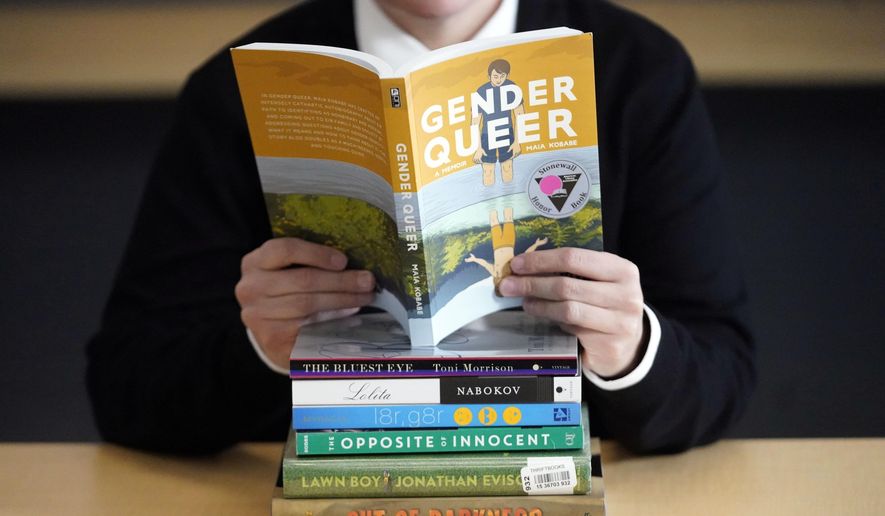Parents challenged books in school libraries and classrooms in record numbers for the second straight year, with one highly contentious work on LGBTQ identity bearing the brunt of conservatives’ wrath.
The American Library Association’s annual “State of America’s Libraries Report,” released Monday, found the most-cited reasons for the efforts last year were sexually explicit material, profanity and LGBTQ gender identity content.
The ALA found the number of reported challenges to books nearly doubled from the previous record of 729 in 2021 to 1,269 last year — and the number of challenges to unique titles rose 38%, from 1,858 to 2,571 over the same period.
Of the 1,269 challenges reported last year, 51% were for books taught in schools or found in school libraries, according to the ALA. Forty-eight percent were for public libraries and 1% for college and university libraries.
The actual number of challenges could be higher because the ALA limits its data to any formal, written complaint that the news media or educators report.
“Overwhelmingly, we’re seeing these challenges come from organized censorship groups that target local library board meetings to demand removal of a long list of books they share on social media,” said Deborah Caldwell-Stone, director of ALA’s Office for Intellectual Freedom.
But Sheri Few, founder of South Carolina-based United States Parents Involved in Education, said parents have the right to object to “pornography” in libraries accessible to their children.
“The content of these books is perverse, degrading, and highly inappropriate,” Ms. Few told The Washington Times. “Parents have had enough of the ‘woke’ agenda working to indoctrinate their children.”
Conservatives say librarians, not parents, have crossed the line by stocking books written for adults in children’s libraries.
Maia Kobabe’s comic book-style memoir “Gender Queer,” an account of the author’s coming out as nonbinary and queer, led the ALA’s list of most-challenged books for the second year in a row in 2022. The group’s report found that parental rights groups last year made 151 efforts to remove the graphic novel — which includes brightly colored illustrations of minors engaging in gay sexual activity — from library shelves.
The author of “Gender Queer” and fellow author Jonathan Evison — whose “Lawn Boy,” a first-person account of a gay man’s coming of age drew 54 challenges last year — have said in interviews that demand from school libraries rose after the ALA gave each of them an Alex Award as books “written for adults that have special appeal to young adults, ages 12 through 18.”
A new title in the 2022 list is Mike Curato’s “Flamer,” a semi-autobiographical novel set in a Boy Scout summer camp in 1995 that tells the story of a 14-year-old Filipino American who is bullied for his closeted homosexuality. The ALA last year recorded 62 challenges to the book from concerned parents saying it is too sexually explicit for children.
About 6 out of every 10 challenges last year targeted books and materials in school libraries, classroom libraries or school curricula, where parents in red states have led efforts to ban many of the titles.
The ALA found that deep-red Texas led the nation last year with 93 challenges to 2,349 separate titles, with mothers in some school districts organizing reading groups to tag long lists of titles and demand that school boards remove them from libraries.
• Sean Salai can be reached at ssalai@washingtontimes.com.




Please read our comment policy before commenting.